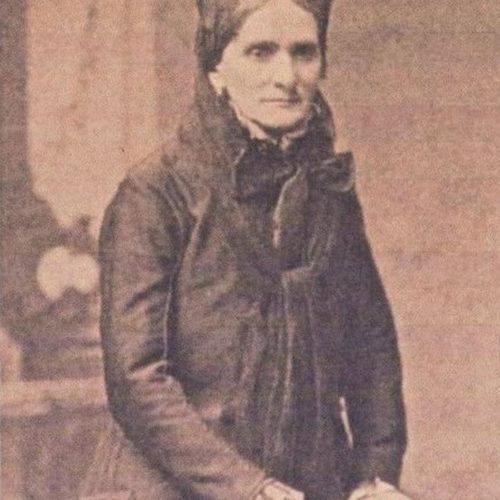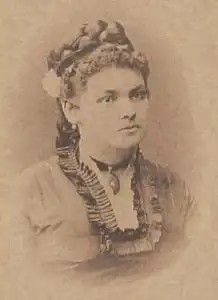Beethoven had issues with women
mainWelcome to the 100th work in the Slipped Disc/Idagio Beethoven Edition
Andante favori for Piano in F major WoO 57 (1805)
Between his arrival in Vienna in his early 20s and his near-total deafness twenty years later, Beethoven was almost perpetually in love. What all the women he fell for had in common was their unattainability. They were either upper class, or married, or uninterested in him, none of which diminished the ferocity of his passion or his persistence. There is something quixotic in Beethoven’s pursuit of love. He needs the chase far more than he ever expects a positive outcome.
The women in Beethoven’s life begin with his mother, Maria Magdalena, whom he idealised as a saintly counterpart to his alcoholic father. On receiving word that she was suffering from tuberculosis, he ended his first trip to Vienna to be at her side when she died aged 40, on July 17, 1787. In his earliest extant letter he reports: ‘I found my mother still alive, but in the most wretched condition. She was suffering from consumption and in the end she died about seven weeks ago after enduring great pain and agony. She was such a good, kind mother to me, and indeed my best friend. Oh! Who was happier than I, when I could still utter the sweet name of mother and it was heard and answered; and to whom can I say it now?’
His first love in Bonn was Nanette Streicher, who went on to marry a piano-maker in Vienna, where she offered motherly advice to Beethoven as his personal affairs became chaotic. Another teenage love was Eleonore von Breuning (1771-1841), whom he may have offended with a crude lunge while out on a date.
Beethoven contemplated making a marriage proposal in 1810 to Baroness Therese Malfatti (1792-1851); we don’t know if he actually popped the question and was turned down. The following year he wooed the mezzo-soprano Amalie Sebald (1787-1846) in the spa resort of Teplitz; she may have been the person he had in mind when composing songs to the ‘Ferne Geliebte’ the Distant Beloved. Amelie married in 1815, moved to Berlin and vanished from his life.
Josephine Brunsvik (1779-1821) and her sister Therese (1775-1861) were countesses, way out of his class. Josephine was married to a count who died young and in debt. Beethoven gave her piano lessons for several years and wrote amorous letters to which she responded in kind: ‘I would have to violate sacred bonds if I yielded to your request – believe me – that I, by doing what is my duty, suffer the most’. In the summer of 1811 and again the following year Beethoven met Josephine at Teplitz, by which time she was remarried. She might have been the one he had in mind when writing his 1812 ‘immortal beloved’ love-letter. He had already given Josephine the short Andante favori, with its repeated motif of Jo-se-fin-e, signifying either a pedagogic device or a memento of love. All options are open, as we shall see.
Josephine’s sister Therese Brunsvik is probably the woman Beethoven had in mind when composing Für Elise. She was definitely the dedicatee of his 24th piano sonata, opus 78, although that might just mean that she paid for it. Was it an act of love? Therese never married.
The Brunsviks had a cousin, countess Giulietta Giucciardi (1784-1856). Beethoven gave her piano lessons and the dedication of the Moonlight Sonata. Long after, he told his assistant Schindler that he had been in love with Julie ‘but she was of a different class’. Schindler erroneously concluded that she must have been the ‘immortal beloved’. Julie married a passing count in 1803.
Antonie Brentano (1780-1869), dedicatee of the Diabelli Variations, was nominated by the biographer Maynard Solomon as Beethoven’s immortal beloved. Her father was a Habsburg courtier and art curator and she married into the literary Brentano family in 1798. Not only was she married when Beethoven fell for her, she was pregnant as well, and her husband was a good friend of Beethoven’s who lent him money when in need and never demanded repayment.
All of these women were safe to love because they were impossible to marry. What we cannot know is whether Beethoven ever made love to a woman. It would be entirely in keeping with a musician’s life that he had a fling with an opera singer or chorister, or that he visited brothels, but there is no evidence to support any sexual activity on his part, not even a dirty joke or a proposition to a prostitute. Beethoven had been physically desirable in his 20s but by 35 he stopped caring for his appearance and personal hygiene. Not to labour the point, he stank.
So did Beethoven ever have sex? There is a rumour – nothing more – of an illegitimate daughter. Josephine Brunsvik had four children with her first husband and three more during a short-lived second marriage which ended in a vicious custody battle. At least three of her children were said to be conceived while her husbands were out of town. The seventh, Minona, was born in April 1813 — nine months after the ‘Immortal Beloved’ letter. Josephine died indigent in March 1821 as Beethoven was composing his penultimate piano sonata, opus 110, which contains a trace of the Andante favori, Josephine’s theme.
Minona (whose name is an anagram of Anonim) lived out her life as a lady’s companion in Vienna, a kind of superior servant, dying there in 1897. In old age, she bore some resemblance to Beethoven.

Tongues wagged. Was she his daughter? Here’s Minona when young.

An Estonian composer, Jüri Reinvere, wrote an opera about her that premiered in Regensburg in January 2020. The evidence against his paternity is that Beethoven, who railed against sexual immorality in his sister-in-law, would have gone against all his principles had he slept with Josephine who may have been no less promiscuous. On the other hand, he may have not known of her other affairs. If he was ever intimate with a woman, Josephine is the likeliest partner.
As for the Andante favori, it remains one of the most popular encores in the Beethoven piano book. Listen to it being played by a composer, someone who could empathise with Beethoven’s situation. The German romantic Eugen d’Albert, for instance, a man who married six times; or the rather ponderous Hungarian Ernö Dohnányi. Wilhelm Kempff, more of a part-time composer, has a rather instructive manner. Alice Sara Ott takes a more contemporary and lighthearted approach to Beethoven’s dating ditty.
But there’s more to say about his farewell to love.





Comments